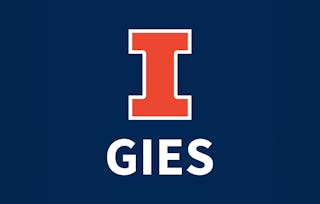In this course, will look at industries and economic sectors that neatly define an economy. We will also introduce you to fundamental concepts involved in a company’s annual statements such as balance sheets, cash flows and its income statement, plus explore popular fundamental values used to filter vast amounts of corporate stocks. And finally, we’ll examine mutual funds and ETFs as alternatives to individual stocks for investing.

Fundamentals of Equities

Fundamentals of Equities
This course is part of Practical Guide to Trading Specialization



Instructors: Jeff Praissman
72,094 already enrolled
Included with
413 reviews
Recommended experience
What you'll learn
Acquire skills and understanding related to stocks, exchange-traded funds (ETFs), and mutual funds
How to perform basic fundamental analyses
Learn how to examine investment benefits and risks
Gain hands-on know-how through practical demonstrations of certain online trading methods
Skills you'll gain
Details to know

Add to your LinkedIn profile
11 assignments
See how employees at top companies are mastering in-demand skills

Build your subject-matter expertise
- Learn new concepts from industry experts
- Gain a foundational understanding of a subject or tool
- Develop job-relevant skills with hands-on projects
- Earn a shareable career certificate

There are 3 modules in this course
Familiarize yourself with some common terms and concepts surrounding investments, such as capital, types of investors, equilibrium, risks and diversification. Identify the different stages of growth and what happens during each. We'll introduce a couple of tools to improve your grasp of different industries and sectors within the economy. Also, to help you visualize what you have learned about the business cycle.
What's included
6 videos3 readings3 assignments
Let’s walk through the basic fundamental accounting concepts covering the Income Statement, Balance Sheet and Statement of Cash Flows. This will be followed by a practical demo of additional fundamental tools.
What's included
4 videos6 readings5 assignments
Acquire certain skills and understanding related to mutual funds and ETFs, including how to identify various product types, as well as their benefits and drawbacks. Gain hands-on know-how through a practical demonstration of how to use market scanners an online trading platform.
What's included
3 videos2 readings3 assignments
Earn a career certificate
Add this credential to your LinkedIn profile, resume, or CV. Share it on social media and in your performance review.
Instructors

Offered by
Explore more from Finance
 Status: Free Trial
Status: Free TrialUniversity of Illinois Urbana-Champaign
 Status: Free Trial
Status: Free TrialUniversity of California, Irvine
 Status: Free Trial
Status: Free Trial Status: Free Trial
Status: Free TrialUniversity of Pennsylvania
Why people choose Coursera for their career

Felipe M.

Jennifer J.

Larry W.

Chaitanya A.
Learner reviews
- 5 stars
62.95%
- 4 stars
22.51%
- 3 stars
5.08%
- 2 stars
3.63%
- 1 star
5.81%
Showing 3 of 413
Reviewed on Nov 18, 2021
Great refresher for me. I completed my finance MBA over 14 years ago and had forgotten much of it. This course helped me regain much lost knowledge
Reviewed on Oct 2, 2022
Great course, lots of support material to help you learn is provided.
Reviewed on Oct 7, 2024
It's a great crash course to understand the fundamentals in the financial world

Open new doors with Coursera Plus
Unlimited access to 10,000+ world-class courses, hands-on projects, and job-ready certificate programs - all included in your subscription
Advance your career with an online degree
Earn a degree from world-class universities - 100% online
Join over 3,400 global companies that choose Coursera for Business
Upskill your employees to excel in the digital economy
Frequently asked questions
To access the course materials, assignments and to earn a Certificate, you will need to purchase the Certificate experience when you enroll in a course. You can try a Free Trial instead, or apply for Financial Aid. The course may offer 'Full Course, No Certificate' instead. This option lets you see all course materials, submit required assessments, and get a final grade. This also means that you will not be able to purchase a Certificate experience.
When you enroll in the course, you get access to all of the courses in the Specialization, and you earn a certificate when you complete the work. Your electronic Certificate will be added to your Accomplishments page - from there, you can print your Certificate or add it to your LinkedIn profile.
Yes. In select learning programs, you can apply for financial aid or a scholarship if you can’t afford the enrollment fee. If fin aid or scholarship is available for your learning program selection, you’ll find a link to apply on the description page.
More questions
Financial aid available,



